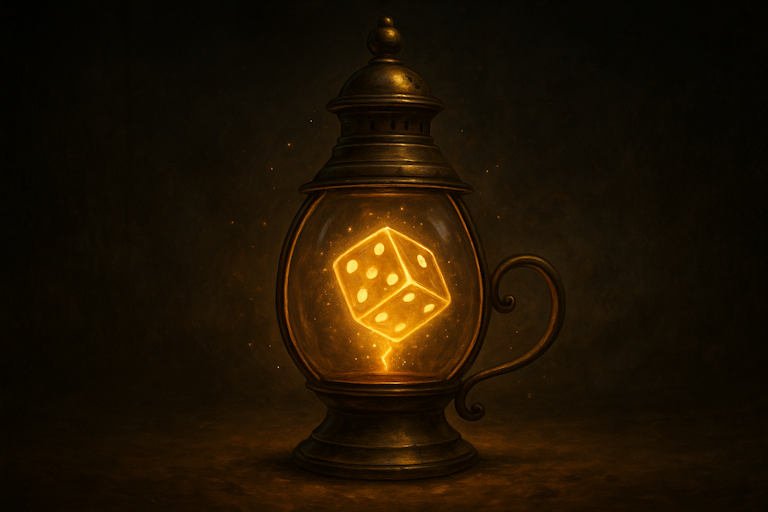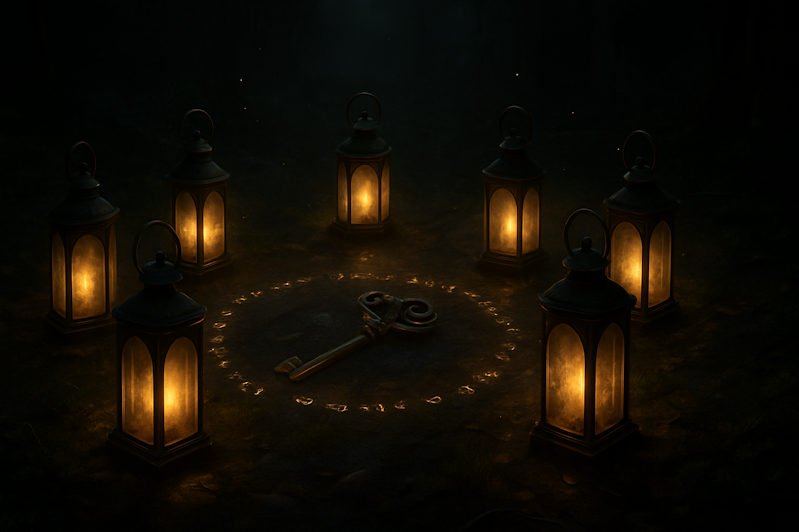
The power of choice in games: the irresistible tension of branching storylines (2025)
The power of choice in games is one of the strongest forces shaping how we play. A simple decision—turn left or right, save or sacrifice—can transform the entire experience. Unlike fixed stories, branching storylines thrive on uncertainty, creating a sense of suspense that feels personal and unforgettable.
What makes this tension so irresistible is that it reflects our own lives. Choices always carry consequences, and in games, those consequences arrive faster, clearer, and often more dramatic. The result is immersion: players are no longer following a script, but actively shaping the story as it unfolds.
In this article, we explore why the power of choice in games matters so deeply. From branching storylines to emotional weight, from illusions of choice to real impact, we will uncover how design turns decisions into drama.
The power of choice in games: what are branching storylines and why do we crave them
The power of choice in games becomes clearest when we look at branching storylines. Unlike linear plots, where events follow a fixed sequence, branching stories allow players to decide how the narrative unfolds. Each choice splits the path, creating alternate possibilities that make the experience feel alive. The sense that “this could have gone differently” is what fuels suspense and replayability.
Branching storylines function as narrative trees. One decision might open a door to loyalty, while another leads to betrayal. The beauty is not only in the destination but in the journey: players invest emotionally because they know their actions matter. Even small decisions—choosing dialogue, sparing a rival, or picking a path—can ripple outward, shaping outcomes in unexpected ways.
This craving for branching stems from human psychology. We are wired to imagine “what if” scenarios, and games provide a safe space to explore them. A branching path lets us test different identities: hero, rebel, traitor, or savior. It is a mirror that reflects our values and, at times, our contradictions. This is why the power of choice in games resonates so deeply—it turns play into self-discovery.
Moreover, branching storylines create tension by withholding certainty. Players step into the unknown with every decision, never entirely sure what the consequences will be. This unpredictability heightens suspense, pulling us further into the story. Board games may rely on dice for surprise, but branching narratives achieve it through agency: the surprise comes from ourselves.
Ultimately, branching storylines reveal why choice feels so powerful. They give us control, but also responsibility. Every decision writes a unique version of the tale, and no two players will experience it in exactly the same way. That uniqueness is the essence of immersion—and the reason we crave branching narratives in games.
Reveal the Firefly Inn
Behind its lantern light, stories come alive.
Cross the threshold, and let the inn show you what waits beyond.

When choices don’t matter: the illusion vs. real impact
The power of choice in games is thrilling only when choices feel meaningful. Yet many players have experienced the frustration of the so-called “illusion of choice.” A game may present multiple options—A or B, mercy or vengeance, truth or lie—yet no matter what you select, the outcome remains the same. This disconnect undermines immersion, breaking the fragile trust between player and story.
The illusion of choice often arises from branching designs that converge too quickly. A dialogue option might change a sentence but not the result; a dramatic decision might lead back to the same cutscene. While such shortcuts keep development manageable, they weaken the emotional weight of the decision. If players sense that their agency is cosmetic, suspense evaporates.
Contrast this with games that embrace real impact. When a character remembers past choices, when a location changes because of earlier actions, or when entire story arcs diverge, players feel their fingerprints on the world. Even small acknowledgments—a note, a shift in tone, an altered alliance—signal that the system is listening. These touches turn branching into consequence, transforming interaction into story.
Why does this matter so much? Because humans crave feedback. In life, our decisions echo unpredictably, and we bring that expectation into play. If a choice yields nothing, it feels hollow; if it reshapes the narrative, it feels alive. This is why the power of choice in games is not just about offering paths—it is about showing that each path carries weight.
Designers face a delicate balance. Too many branches can overwhelm production and fragment the story. Too few, and the sense of agency fades. The art lies in crafting limited but meaningful decisions: fewer branches, each with real consequence. Suspense thrives not in the number of options, but in the depth of their impact.
Ultimately, the difference between illusion and real choice defines whether players remain engaged. When choices don’t matter, games feel static. When they do, every decision becomes a heartbeat of tension, reminding us why the power of choice in games is one of the most compelling forces in storytelling.
Reveal the Firefly Inn
Behind its lantern light, stories come alive.
Cross the threshold, and let the inn show you what waits beyond.

Four ways branching choices amplify tension
The essence of the power of choice in games lies in the way decisions generate suspense. Branching storylines don’t just move a plot forward—they keep players on edge by making outcomes uncertain, personal, and emotionally charged.
- Agency over outcome: When choices truly influence events, players feel ownership of the story. This sense of authorship heightens suspense, because every action carries the weight of personal consequence.
- Consequences that ripple outward: The most powerful decisions are those that echo across time. A choice made early might return hours later, altering relationships or reshaping the world. This uncertainty keeps players alert and invested.
- The emotional weight of decisions: Not all tension comes from combat or puzzles—some of the strongest suspense arises from moral dilemmas. Choosing between loyalty and survival, or trust and betrayal, creates emotional stakes that linger long after the moment has passed.
- Replayability through curiosity: Branching paths spark the question: what if I had chosen differently? This curiosity drives replay, giving the game a lasting tension even after the first ending is reached.
Together, these elements show why the power of choice in games goes beyond mechanics. It is a design philosophy that turns decisions into suspense, and suspense into unforgettable stories.

What you choose is what you become.
You may glance over your shoulder,
yet the road only moves forward.
Balancing branching with structure: lessons in design
The power of choice in games is most effective when it balances freedom with structure. Branching storylines may sound limitless, but in practice they require careful design. Too many branches can overwhelm developers and fragment the story, while too few leave players sensing the illusion of choice. The art lies in crafting a system where decisions feel weighty without dissolving the coherence of the narrative.
One proven approach is to design fewer but deeper branches. Instead of offering dozens of shallow options, games can focus on a handful of turning points with lasting consequences. A choice about loyalty, for example, can ripple across relationships, alliances, and endings, giving the story variety without losing focus.
Another method is to let smaller choices shape texture rather than direction. Dialogue, atmosphere, and character reactions can adjust based on earlier decisions, even if the main plot continues along a set path. This layering ensures that players feel recognized, while keeping the narrative manageable.
Finally, branching must be tied to emotion, not just mechanics. A decision to sacrifice, betray, or forgive resonates long after the moment because it connects to universal themes. Suspense arises when players hesitate, unsure of what each option might cost.
In this balance of freedom and design, the power of choice in games reveals itself as both a challenge and an opportunity. When done well, branching storylines don’t just multiply endings—they multiply meaning.
The lasting allure of branching paths
The power of choice in games is more than a mechanic; it is the heartbeat of suspense and immersion. Every time a player is asked to decide—between loyalty and betrayal, safety and risk, silence and confession—the story gains weight. Branching storylines transform play from following rules into shaping destiny. They remind us that the most gripping tension is not always external conflict but the inner struggle of deciding who we are.
What makes the power of choice in games so enduring is its universality. We are wired to wonder what might have been, to imagine the road not taken. Games give us the rare chance to walk those roads, to test alternate selves, and to feel the ripple of our actions in controlled yet emotionally real ways. Unlike linear narratives, branching paths offer not just one ending but many—each reflecting the player’s decisions, each carrying its own resonance.
Of course, real choice requires consequence. When decisions echo across time, when characters remember, and when worlds change, players feel a sense of ownership that fuels replay and emotional investment. This is where suspense thrives: in uncertainty, in the knowledge that every step forward closes doors behind us.
Ultimately, the power of choice in games shows why branching storylines will continue to shape the future of play. They invite us not merely to watch a tale unfold, but to carve it with our own hands. Whether in digital worlds or hybrid formats, choice ensures that no two journeys are the same. The lantern may light the path, but it is our decisions that determine which shadows we leave behind.
Reveal the Firefly Inn
Behind its lantern light, stories come alive.
Cross the threshold, and let the inn show you what waits beyond.





